Types of Criminal Justice Degrees

Find your degree
The reason I like the criminal justice system is there aren’t Republican or Democrat victims or police officers or prosecutors. It’s about respect for the rule of law!
Trey Gowdy

Criminal Justice is an interdisciplinary and sprawling field. This line of work offers stable and reliable employment. And it is ideal for those looking to protect, punish and help others in their communities. It can be practiced at the local, state, and federal levels. And there are even international roles in this sector.
As you can see from the quote above, it’s also one of the most contentious fields in our society. It taps into our best intentions and most frightening instincts. It defines our character, expectations, and ability to work cooperatively as a community.
What is Criminal Justice?
Criminal justice is how we deal with crime in the United States (and most other places). It’s designed and executed through the criminal justice system. This is made up of the following:
- Prosecutors
- Police
- Lawyers
- Judges
- Courts
- Juvenile Justice Agencies
- Correctional Institutions
In theory, criminal justice aims to prevent and deter crime. Some of its goals include:
- Identifying and capturing those who have committed crimes
- Trying them and deciding on an appropriate punishment
- Rehabilitating criminals when possible
- Preventing crimes from occurring
- Supporting victims of crimes
The actions in the criminal justice system are intended to take place within the framework of the codified law. However, that often isn’t the case.
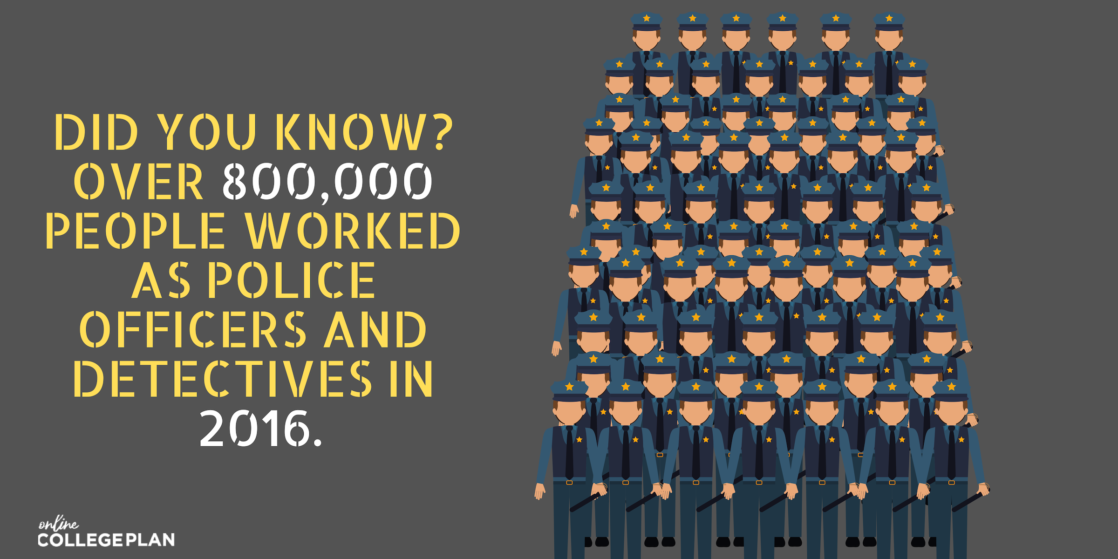
Considerations When Looking for a Criminal Justice Degree
This resource will examine the different higher education options in criminal justice. We’ll discuss different criminal justice degrees and degree levels. And you’ll learn about what you’ll study and the skills you’ll build. You will also read about the outcomes of graduating from a criminal justice program. As you’re reading, you can consider what you’re looking for in a criminal justice degree and career. To that end, mull over the following questions as you read this guide:
- What is your educational and career experience? Building off your accomplishments and strengths is a great way to succeed in a criminal justice career. Are you just entering the field? Or are you looking to pivot away from what you’ve previously done? What did you like or dislike about your previous career or educational experiences? Can you choose a specific degree in criminal justice to enhance your strengths and mitigate your weaknesses?
- What are your goals, and how can an online degree in criminal justice help you achieve them? Goals can be daunting, but think about foundational aspects of your personality. Do you long to help people directly? Do you want to capture and punish the guilty? Can you deal with the responsibility that a criminal justice career demands?
- Would you like to work in law enforcement, defending the accused, working in a court, with prisoners, or as a prosecutor? You don’t have to decide this before entering a criminal justice program. This is especially true if you’re considering an undergraduate option. But it can be helpful if you have a particular role in mind.
- How much could you pay in tuition for an online criminal justice degree? How much would you be willing to borrow to pay for your college education? Fortunately, an online criminal justice program will likely save you time and money compared to a traditional one.
- A wide range of costs come with entering any higher education program. There are many ways to borrow money and varying schedules to pay back what you’ve borrowed. Online students also often qualify for financial aid, scholarships, and grants. These can reduce your costs considerably.
- When looking at the types of criminal justice degrees on this list, consider how much they cost. If you have to borrow money for tuition, try to take public loans over private ones. Choose lower-cost, not-for-profit colleges wherever you can. These schools are almost always cheaper than for-profit colleges.
- How much time will you be able to devote to an online degree in criminal justice? Will you need to continue working while pursuing your degree? Do you have personal or family obligations to consider? Think about the amount of academic work you can handle on a daily and weekly basis.
- Where would you like to live and work after earning a degree in criminal justice? Such degrees can qualify you for work in many roles and locations across the country and the world. Some areas also have a far greater demand for criminal justice professionals than others.
- You’ll find multiple delivery options for criminal justice programs. What’s the best delivery format for your online criminal justice program? Would you like to take your degree in criminal justice full-time or part-time? Do you want to study online or on campus? There are also hybrid programs that involve a mix of online and traditional on-campus classes.
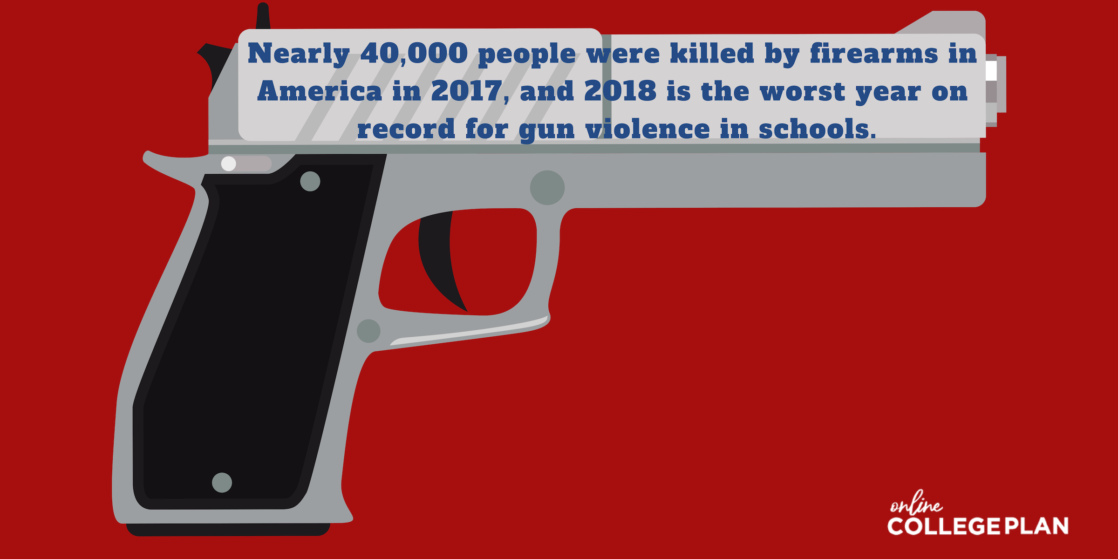
Let’s take a look at what you’ll get out of a degree in criminal justice:
What Skills Will You Build in a Criminal Justice Degree?
Criminal justice degrees and careers vary widely. However, there are some core skills you can expect to build in such programs. They include:
Communication and Comprehension Skills
If you thought you would get out of writing as a criminal justice professional, think again. Verbal communication is crucial. But the success of criminal justice professionals is often a product of paperwork. For example, if you are a police officer, you’ll have to write reports to get warrants. And you will likely need to document the time you spent working.
Prosecutors and defense lawyers live and die (professionally) by the writing they’ve prepared. So their ability to synthesize and digest documentation is critical. No matter where you work, you’ll need excellent oral/written communication skills. These skills are essential for excelling in criminal justice. So it’s no wonder a degree in criminal justice focuses on building skills in these areas.
Ethical Conduct Skills
As a criminal justice professional, you’ll have significant power over people’s lives. You could potentially decide when to mete out lethal force or long-term incarceration. Too often, we’ve seen this power improperly used and abused. Criminal justice majors learn ethical standards alongside legal ones. This can separate them from other candidates in the field. You will often face difficult situations and have to make challenging decisions. However, this will allow you to further commit to these principles.
Research Skills
You’ll encounter wildly different situations when you’re working in criminal justice. Many of them will likely be scenarios you have never experienced. This is where research will become essential. You’ll need to learn to find accurate information quickly. And you will have to present the findings of your research to others. You may also be required to deliver the outcomes through reports, visual data, and model usage. Good criminal justice programs will teach strong research skills.
Technology Skills
Criminal justice is changing rapidly. And so is technology. Today’s criminal justice majors graduate with skills their predecessors may have never learned. For example, cybersecurity is a large, under-supplied area of criminal justice. This area has vastly growing needs, and technology skills are critical. Regardless of where you end up working, cutting-edge technology skills will be vital.
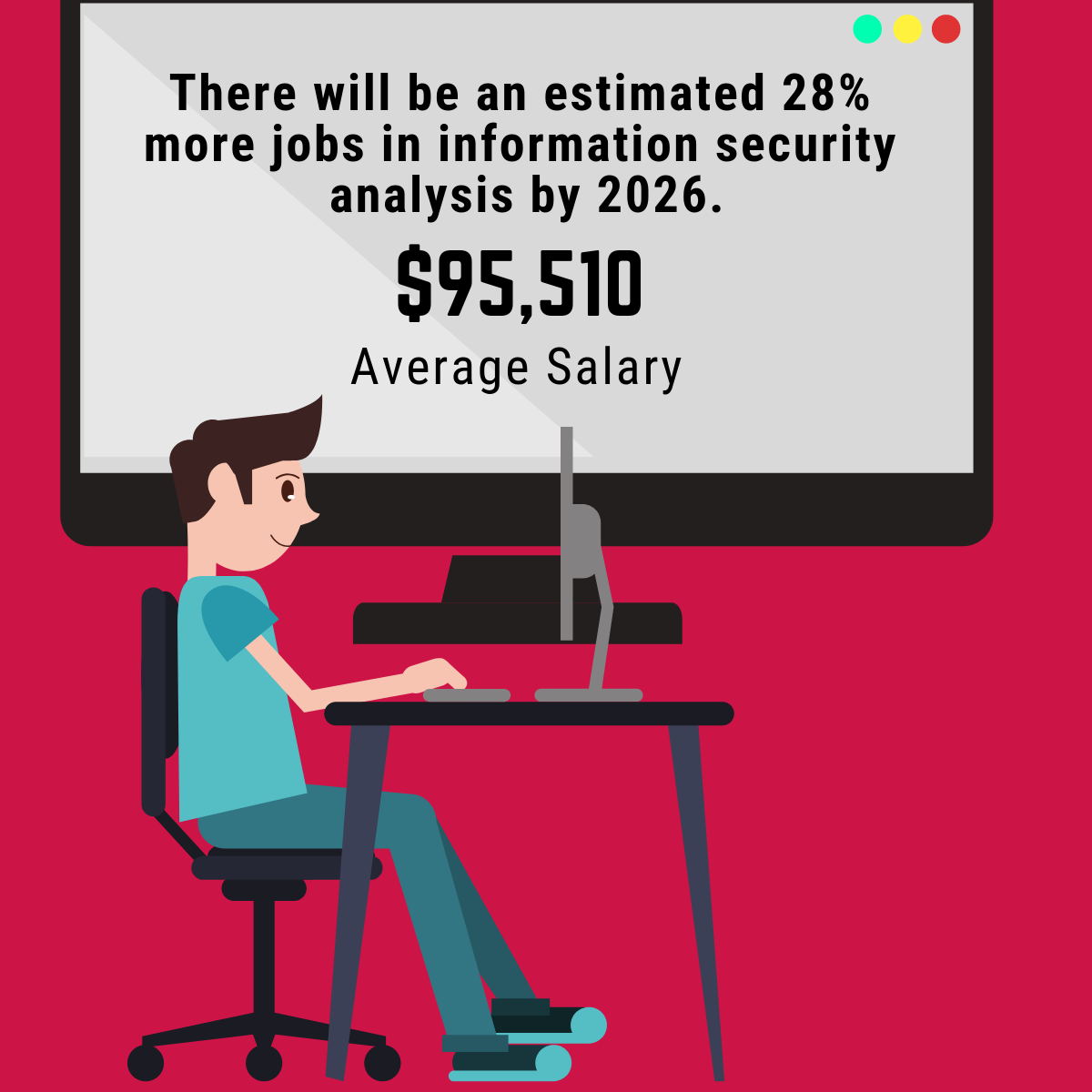
Being Detail Driven and Building Organizational Skills
Criminal justice careers demand professionals that can pay close attention to small details. You’ll need to make decisions and document them based on these details. Being detail-oriented isn’t something that comes naturally to everyone. However, it’s an essential skill in any criminal justice education program. You’ll also learn how to organize your time to maximize productivity. This will ensure you don’t get overwhelmed by the responsibilities a career in criminal justice demands.
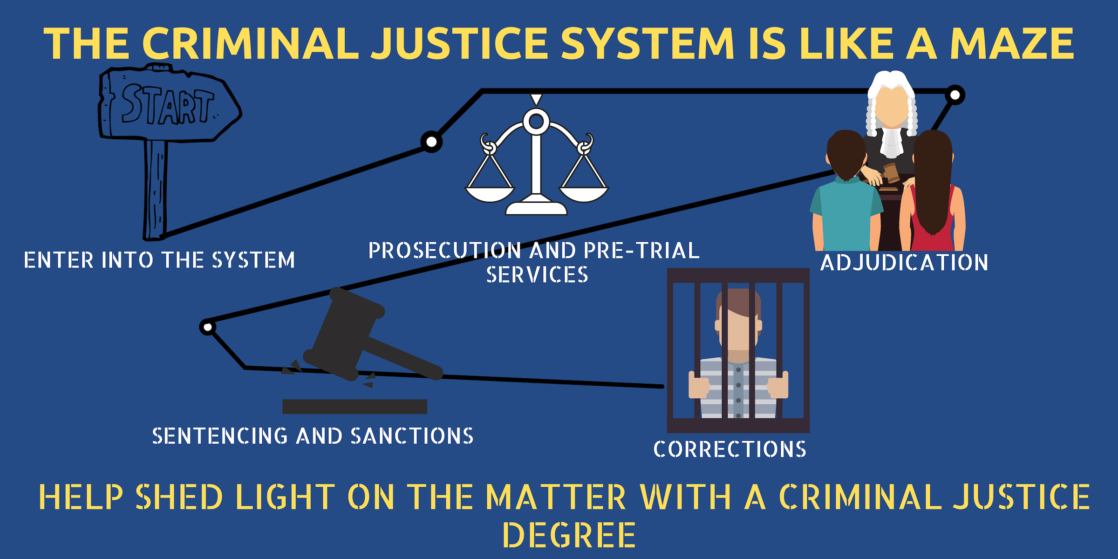
Why Should You Opt for an Online Criminal Justice Degree Instead of an On-Campus Program?
An online criminal justice program has several advantages over traditional, on-campus programs. Chief among them:
- In online criminal justice degrees, you’ll often pay less in tuition. You won’t need housing, and you will also save on transportation costs.
- You’ll have your choice of some of the best colleges in the nation. You can access elite criminal justice programs regardless of where they are located.
- Online criminal justice degrees are often more customizable than their traditional counterparts. You’ll likely be able to schedule classes around your other responsibilities. You can create a graduation timetable that works for you. For example, online programs are ideal if you need extra time to finish your degree. But they are also perfect if you want to graduate faster and start your career as soon as possible.
- By taking a degree in criminal justice online, you can tailor your studies to meet your career goals. For example, you can focus on specific aspects of the field that align with your interests.
How Can We Help You Select a Criminal Justice Degree Program and Improve Your Online College Experience?
At Online College Plan, we’ve got excellent resources to help you find the criminal justice degree that’s best for you. We’ve prized online degrees for the reasons mentioned above. So we’ve written a lot about online criminal justice degrees and similar disciplines.
We’ve also ranked the top colleges and criminal justice programs. We use factors that include affordability, graduation and retention rates, and more. Here are a few of our other resources about criminal justice and similar online degrees:
- Top 20 Online Masters in Legal Studies Programs
- What are the Career Options with a Criminal Justice or Law Degree?
- Top 19 Bachelors for Online Criminal Justice Degree Programs
- Top 10 Criminal Justice Degree Online Programs
- Top Online Ph.D. Programs in Criminal Justice
- Top Online PhDs in Homeland Security
- What Can I Do With a Computer Information Systems And Security Degree?
Financing Your Online Criminal Justice Degree Program
There are many ways to finance a degree in criminal justice. All prospective criminal justice majors should fill out the FAFSA form. In addition, individual schools offer grants and scholarships specific to incoming students. So be sure to check with the financial aid office to see what might be available for you. There are also plenty of general scholarships available for online students.
We’ve written several helpful guides to help you afford your college education. Check out the resources below for more information:
- How Does Financial Aid Work?
- 15 Free & Most Affordable Colleges In America
- 40 Free Tools for Managing Student Loans
- Exploring Online College Scholarships
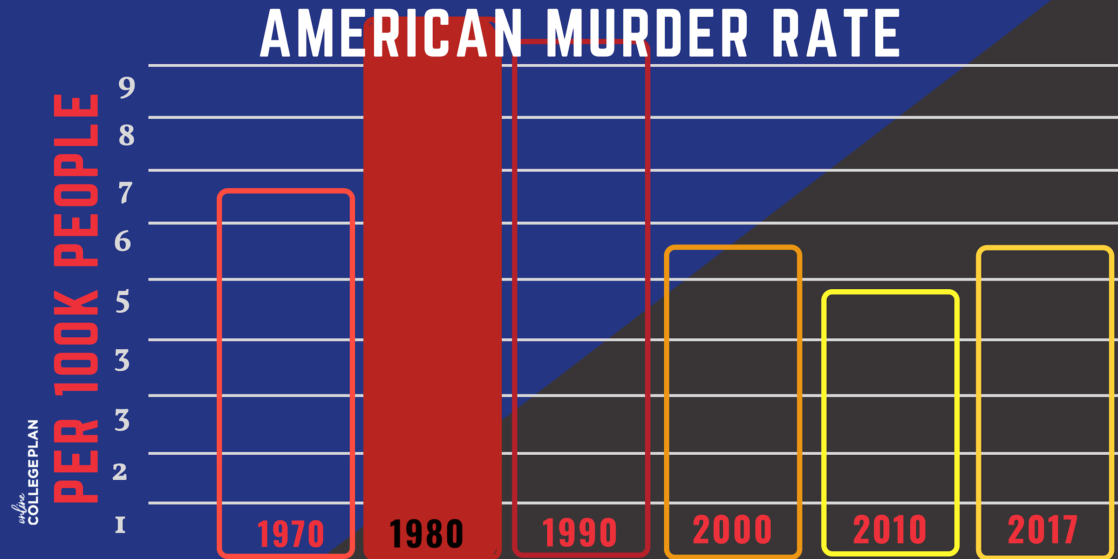
What are the Different Types of Criminal Justice Degree Programs?
Criminal Justice is a broad field, and there are many concentrations available. Degrees classified as criminal justice tend to focus on theories about crime. Yet they also teach students about the law and the criminal justice system. You’ll learn how law enforcement agencies and the judicial system work.
Many of these are broader degree programs that can lead in many different directions. Others are specializations within a particular area of criminal justice. If you have a specific career path in mind, consider one of these criminal justice degree concentrations:
Police Science
Do you want to become a police officer? This degree can set you apart from the average candidate for these jobs. In these programs, you’ll learn how to work at law enforcement agencies to:
- Investigate Crimes
- Write Reports
- Provide Indispensable Documentation
- Police Ethically
- Build Relationships Within the Communities You Police
Corrections
In these majors, you’ll focus on the prison system. And you will learn what prisons are like for those living and working within them. You’ll study topics like:
- How To Improve Prisons
- How Prisons Get Their Funds
- How To Increase Funding
- Logistics of Running Prisons
- Various Correctional Facilities and Programs
If you want to work as a corrections officer, warden, or prison administrator, this is the major for you.
Paralegal Studies
For some, a criminal justice major leads to law school. However, you can get a legal job in just two years of study with a paralegal program. For many, this is a great way to explore working as part of a legal team. You can do so without the commitment of time and money that comes with going to law school. You’ll gain significant research and writing skills. And you’ll get a far better understanding of our legal system. Then, you will be qualified to work for legal teams in public, private, and non-profit organizations.
Forensic Science
Forensic scientists collect crime scene evidence and analyze it, aiding in investigations. In these programs, students build technical and scientific skills. These skills are incredibly diverse and apply to many jobs and industries. You would likely need a graduate degree in forensic science to work in this field.
Cybersecurity
There are many dual criminal justice and cyber security or information assurance programs. Even if you focus only on cybersecurity, you’ll be qualified to work in a number of roles. Both government agencies and private companies desperately need trained professionals in this field. You’ll learn how to detect cyber-criminals and prevent cybercrime. And you’ll build systems that protect digital information.
Criminology
Criminology majors delve into the criminal mind. What causes crime? What can be done to prevent it? You’ll study law, statistics, psychology, microeconomics, and more in these degree programs.
These are just a few types of degrees related to or falling under the umbrella of criminal justice. Now we’ll discuss the degree levels you can pursue depending on your background and goals.
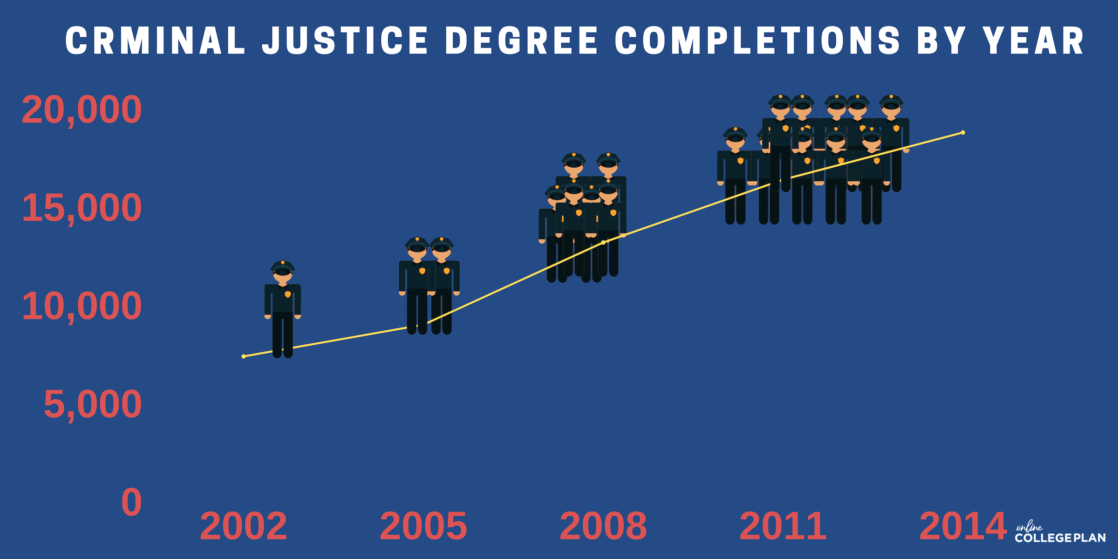
What are the Different Levels of Criminal Justice Degrees?
Depending on what you want to do in criminal justice, you’ll pursue a specific degree level. If you haven’t attended any college programs, consider starting with an associate’s or bachelor’s degree. Then, to further your skills, you might pursue a master’s or doctoral degree. Here are the different degrees in criminal justice:
Associate Degree in Criminal Justice
Associate degree programs can be completed in 18 months to two years of study. Credits earned in an associate degree will likely apply to a bachelor’s in criminal justice. Many two-year schools have transfer agreements with four-year colleges. This makes it easier for associate degree students to continue on to a bachelor’s degree. Associate degree programs prepare you for entry-level positions in criminal justice. Many associate degree graduates either continue their education, work at law enforcement agencies or work as police officers.
Bachelor in Criminal Justice
With a bachelor’s degree in criminal justice, you can specialize in many areas. Such programs can prepare graduates for careers as:
- Police Officers
- Probation Officer s
- Detectives
- Private Investigators
- Parole Officers
- Forensic Science Technicians
- Correctional Officers
- Security Analysts
- Crime Analysts
- Mental Health Counselors
- Security Analysts
- Forensic Accountants
Bachelor’s degrees can typically be completed in four years of full-time study. However, the amount of time it takes will depend on several factors. For example, if you already have credits from an associate degree, you might finish faster. Or, if you choose an accelerated online program, you may also graduate sooner. However, online bachelor’s degree programs are also ideal for those who need more than four years. That’s because they typically offer part-time options.
Related: Top Bachelors for Online Criminal Justice Degree Programs
Master’s in Criminal Justice
An MCJ is a terminal degree in the field or a step toward a doctorate. Master’s degrees require between 18 and 24 months to complete. A criminal justice major can focus on one of the many areas in the field. Some of these include:
- Forensic Psychology
- Correctional Counseling
- Human Services
- Justice Administration
- Security Management
- Corrections
- Homeland Security
- Crime and Delinquency
- Crime Prevention
- Crime Control
- Cybersecurity
- Information Systems
- Criminal Psychology
- Criminal Law
A master’s degree will also prepare students for supervisory and leadership roles in criminal justice. Typically, these positions also come with higher salaries.
Doctorates in Criminal Justice
Doctorates are typically for those who want to teach criminal justice at universities. However, they can also prepare a criminal justice major for high-level roles such as:
- Researcher
- Policy Analyst
- Criminologist
- Chief of Police
- Criminal Justice Consultant
- Forensic Psychologist
- FBI Agent
- CIA Agent
- Senior-level Government Official
- Director of Research and Development
- Criminal Psychologist
Graduates receive a DCJ or Ph.D. in Criminal Justice degree. A doctorate takes three to six years to complete. Students will have to write, defend, and sometimes publish a thesis. It is common for applicants to need several years of experience in criminal justice. Some programs require a bachelor’s and master’s in criminal justice.
See Also: Top Online PhD Programs in Criminal Justice

Working in criminal justice means many things to different people. However, here are some of the most common roles criminal justice graduates fill:
- Probation Officer: The Bureau of Labor Statistics found their median wage to be $60,250. And this field is predicted to remain steady through 2031. In this role, you’ll have a caseload of parolees and work to ensure they abide by the terms of their parole.
- Police Officers and Detectives: As a law enforcement officer, you’ll work to protect the public, enforce the law and investigate crime. Their median salary is $66,020. And they were predicted to see 3% growth through 2031, according to BLS.
- Forensic Science Technician: You can work in many agencies in these roles. You’ll analyze crime scene evidence and reconstruct events, among other responsibilities. BLS found their median salary to be $61,930. The field is expected to grow by 11% through 2031. This is much higher than the average for all other occupations.
- Fraud Investigator: Fraud investigators investigate claims of property damage and injury. Their role is to detect and prevent insurance fraud and financial crimes. They earn a median salary of $65,080, according to BLS. This field is expected to decrease by 6% through 2031. Still, 23,200 job openings a year are expected through the next decade.
- CIA Agent: In the CIA, you’ll help the federal government deal with crime across the world, including terrorism. You’ll also be part of enacting its agenda. CIA operations officers make around $124,316 a year, on average. CIA agents generally need a bachelor’s in law, forensics, language, or criminal justice. You will also need at least five years of investigation experience.
- Information Security Analysts: In these roles, you’ll protect networks, systems, and information. This may be for private organizations, non-profits, or government agencies. According to BLS, the median pay for these roles is $102,600. And the field is predicted to grow by a whopping 35% through 2031! Those who pursue cybersecurity or information assurance degrees can fill many newly created roles in this field.
Pursuing a Criminal Justice Degree Program: Where To Begin
The criminal justice world is very diverse. And your ability to join it and effect real change for yourself and others is entirely in your hands. Listed below are just a few affordable criminal justice degree programs. Tuition is based on the cost per academic year. Whenever you find a program you are interested in, be sure to email the college or university. They will send you more information, help you with your application, explain your financial aid options, and more.
Colorado State University

Aurora, Colorado
Tuition:$8,400
Bachelor of Science in Criminal Justice
Colorado State University is a four-year public college in Aurora, Colorado. It was the first accredited public college in the nation to offer fully online degrees. CSU Global features a BS in Criminal Justice online. This program provides students with a complex understanding of the criminal justice system. Some of the courses for this 120-credit degree may include:
- Criminology
- Law Enforcement and American Policing
- Research Methods for the Criminal Justice Professional
- Laws of Evidence
- Criminal Justice and the Constitution
- Criminal Law
- Ethics for the Criminal Justice Professional
- Criminal Behavior
- Crime Scene Investigation
The bachelor’s degree program features multiple start dates per year. Classes are asynchronous. So you can complete your studies whenever it is convenient for you. Online students have a range of support services available. These include tutoring, tech support, career coaching, and more.
California State University – San Bernardino

San Bernardino, California
Tuition: $7,486
Bachelor of Arts in Criminal Justice
CSUSB offers a fully online BA in Criminal Justice. This is a bachelor’s degree completion program. So it’s designed for students who already have some credits. Criminal justice majors can also enroll in a Homeland Security Certificate as part of the program. There are a broad range of courses to choose from. Some of these may include:
- Race and Racism
- Theories of Crime and Delinquency
- Correctional Theory and Institutions
- Victimology
- Community Corrections
- Criminal Behavior
- Terrorism
- Juvenile Justice
- Criminal Law
- Criminal Psychology
- Crime Scene Investigation
Criminal justice majors may be eligible for federal student loans and/or grants. Additionally, veterans and their dependents may be eligible to use VA educational benefits. CSUSB is accredited by the Western Association of Schools and Colleges.
Bellevue University

Bellevue, Nebraska
Tuition: $8,790
Online Bachelor of Criminal Justice
Bellevue University is a four-year private, not-for-profit college in Nebraska. The school serves nearly 12,000 students a year. Bellevue offers a Bachelor of Criminal Justice that can be completed online or on campus. This is an accelerated cohort program. And it features a manageable course load for busy working students. You’ll take one course at a time with the same group of students online. This allows you the opportunity to collaborate with others. And it lets you develop a strong network of other criminal justice professionals. Some of the courses in this bachelor’s degree may include:
- Crime Theory and Causes
- Criminal Courts and Social Policy
- Forensics and Investigative Techniques
- Crime Scene Investigation
- Criminal Law, Evidence, and Constitutional Procedure
- Understanding Violent Crime
- Delinquency and the Juvenile Justice System
- Ethics and Values in Criminal Justice
- Punishment and Criminal Sanctions
- Introduction to Cyber Threats, Technologies, and Security
- Law Enforcement Administration
No SAT or ACT scores are required for admission. And there are eight start dates per year. This program prepares students for a wide range of careers in the criminal justice field. However, it is also ideal for those who want to pursue a master’s. Bellevue offers a Master of Science in Justice Administration and Crime Management degree.
Indiana University East

Richmond, Indiana
Tuition: $7,941
Online Bachelor of Science in Criminal Justice
Indiana University East is a four-year public college in Richmond, Indiana. The University features a 100% online 120-credit BS in Criminal Justice. This transfer-friendly program focuses on the following:
- The Definitions, Causes, and Prevention of Crime
- The Treatment and Rehabilitation of Offenders
- Legal Processes
The program takes an interdisciplinary approach. So it combines legal studies, political science, psychology, forensic science, and other topics. Graduates will be prepared for a range of careers in criminal justice. But they will also be ready to attend law school or pursue a graduate degree. Students in this program will also participate in research internships and field experiences. They will do this under the direction of a faculty member. Some of the online courses in the program may include:
- Theories of Crime and Deviance
- Criminal Justice Data, Methods, and Research
- Police in Contemporary Society
- Corrections and Criminal Justice
- Criminal Justice Management
- Foundations of Criminal Investigation
- Criminal Justice Ethics
- Evidence
- American Juvenile Justice System
- Criminal Behavior
- Crime in the Mass Media
- Wrongful Conviction
- Law Enforcement Administration
Arizona State University

Scottsdale, Arizona
Tuition: $10,978
Online Bachelor of Science in Criminology & Criminal Justice
ASU is a four-year public college serving over 50,000 students. The school features an online BS in Criminology & Criminal Justice. In this program, Criminal justice majors will gain competencies in three key areas:
- Causes of Crime
- Consequences of Crime
- Role of Criminal Justice Agencies in Managing Crime
Students will be taught by the same instructors that teach on campus. And they will earn the same degree. The program requires a total of 120 credit hours for completion. Students will take 40 classes, and each class lasts 7.5 weeks. Some of the online courses may include:
- Introduction to Criminal Justice
- Research Methods
- Statistical Analysis
- Criminology
- Criminal Justice Crime Control Policies and Practices
- Introduction to Corrections
- Introduction to Policing
- Courts and Sentencing
- Assessing Criminal Behavior
This degree can also be completed as part of an Accelerated Master’s program. This allows students to earn their master’s degree in as little as one year after their bachelor’s degree. This opportunity is a great way to save money and time. And it provides more advanced knowledge in the criminal justice field. Applicable master’s degrees include:
Looking for more online criminal justice degree programs? Check out our ranking of the top 30 Online Bachelor’s In Criminal Justice Programs.
